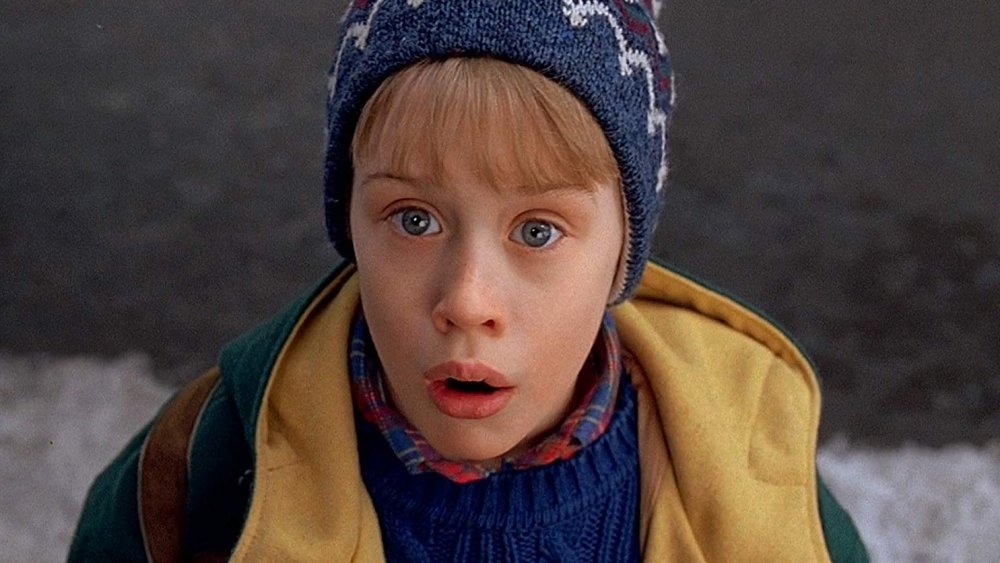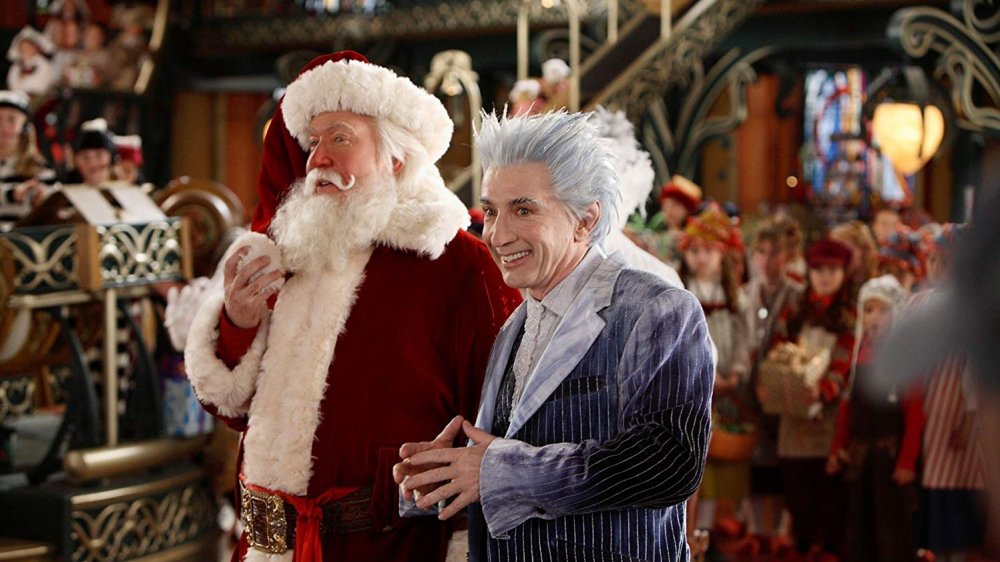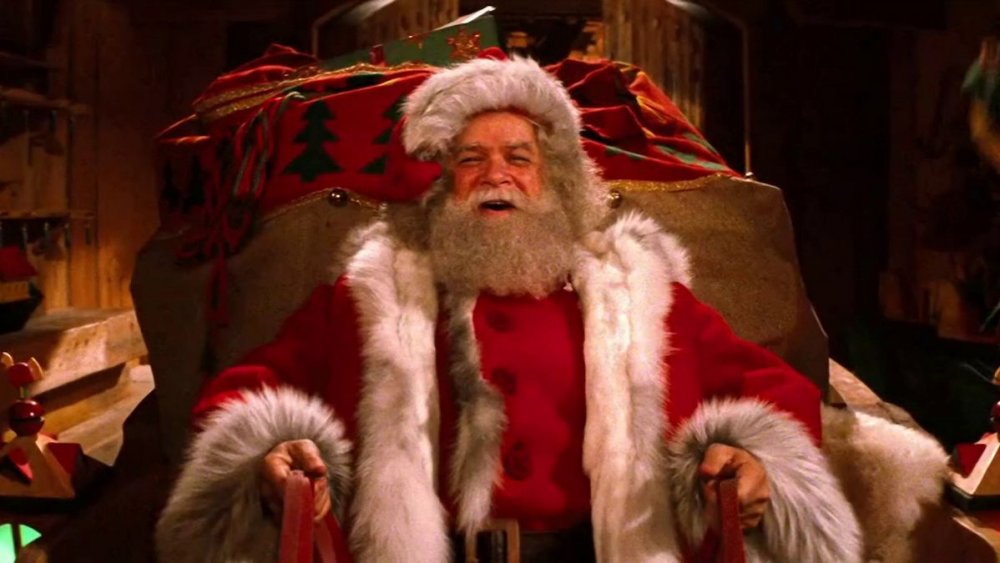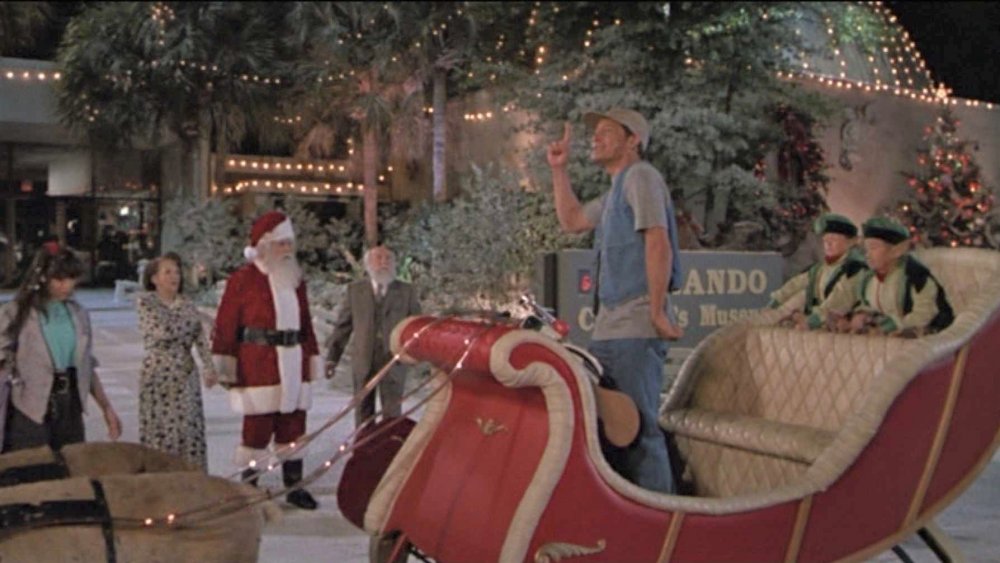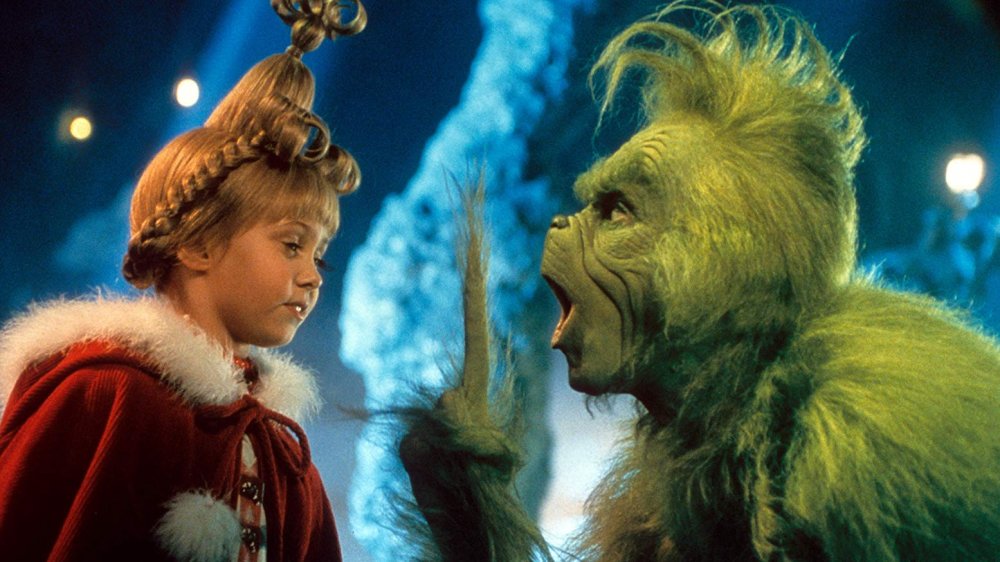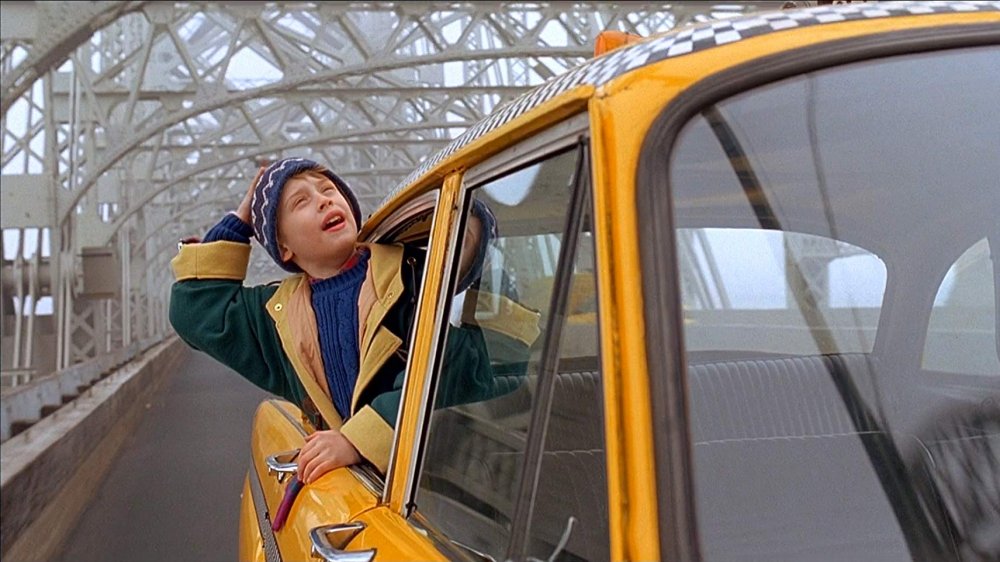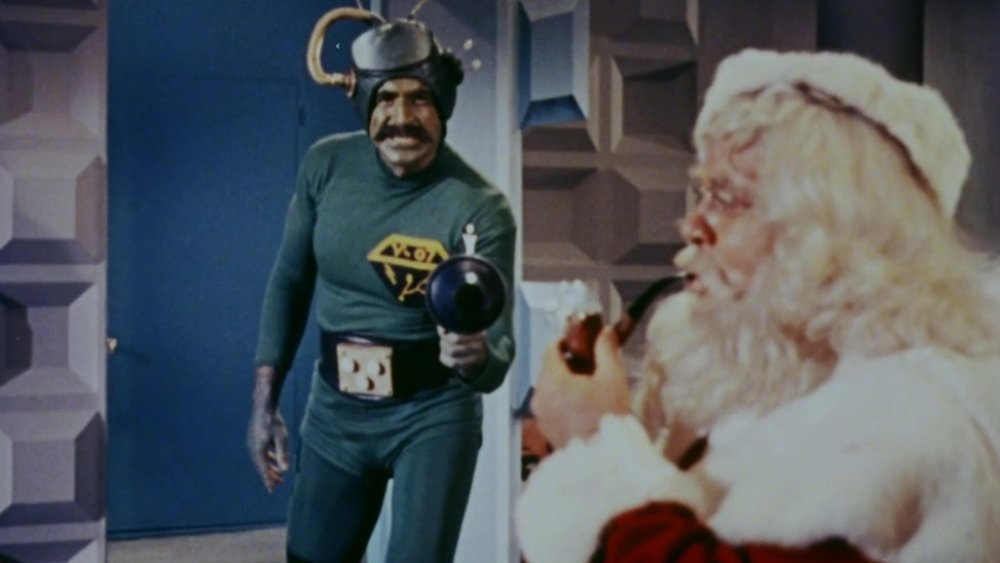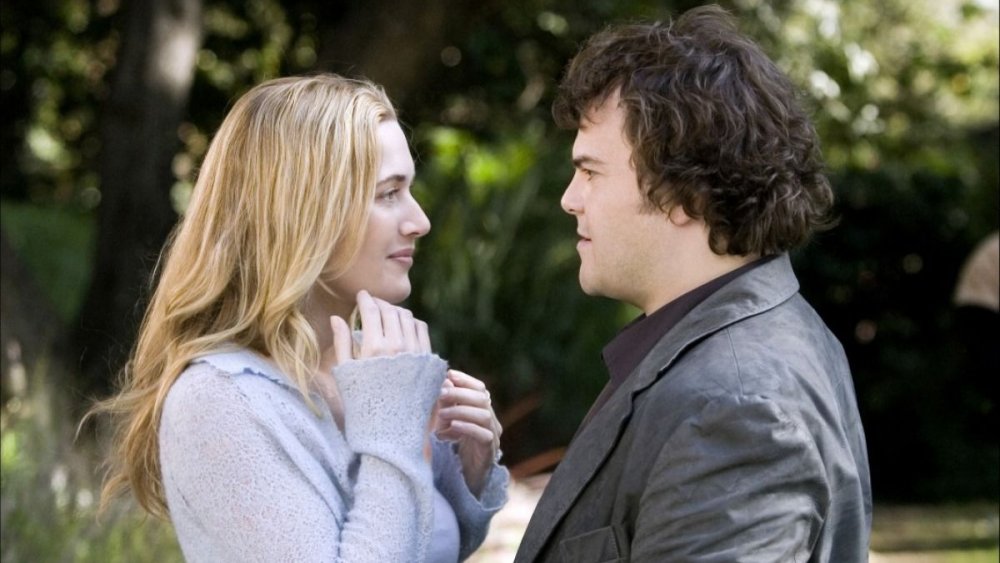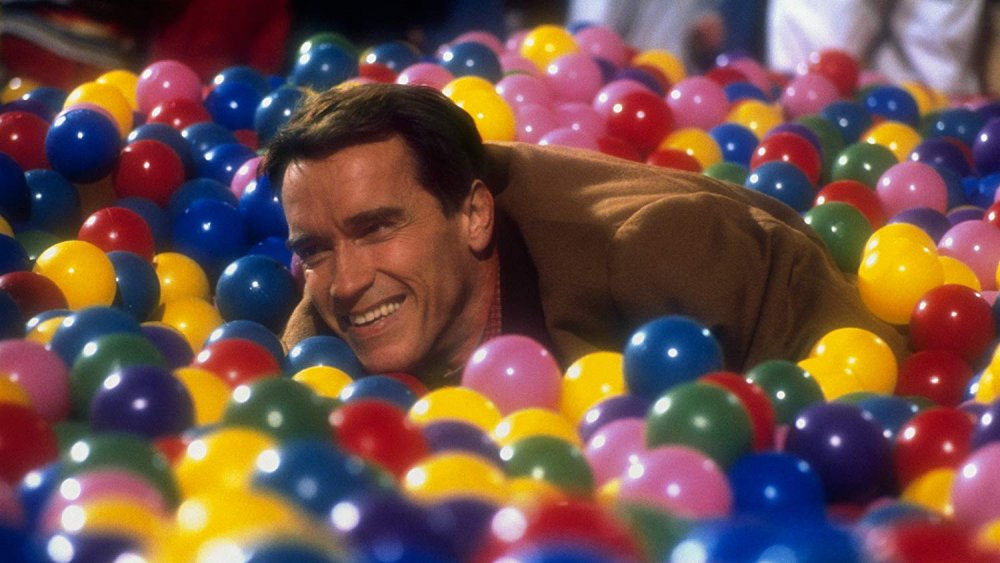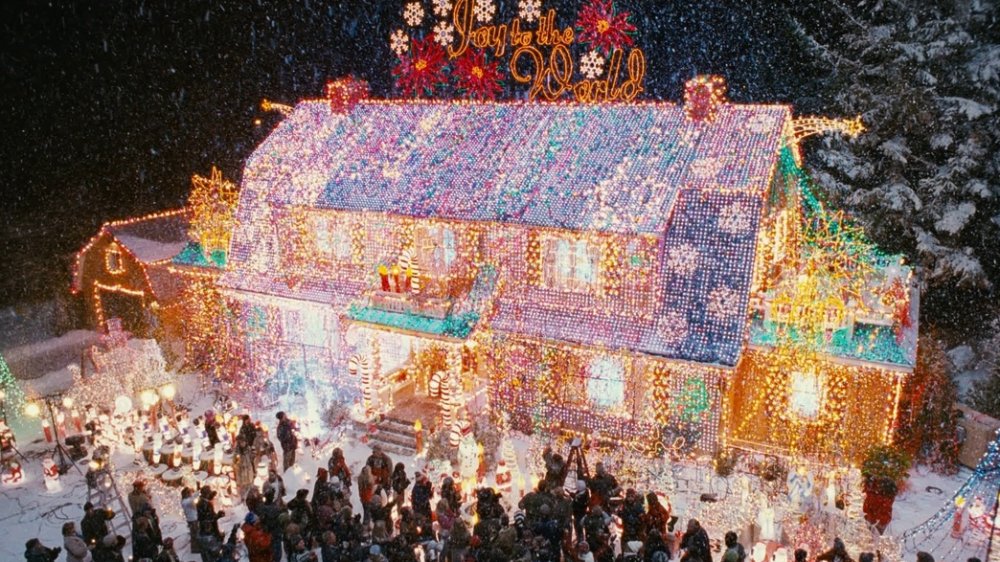Classic Christmas Movies Fans Loved That Critics Hated
The Christmas movie is a fascinating subgenre for a number of reasons, one of which is the built-in staying power these movies have. If you make an instant holiday classic, you can count on it being around for years, but even mediocre Christmas films seem to pick up rabid fanbases. And thanks to the needs of dozens of basic cable networks and streaming services, even critically hated Christmas movies can count on being picked up for repeat airtime every December. In other words, if you make a Christmas movie, even a not-so-great one, it can be the gift that keeps on giving.
This sense of annual obligation to seasonal programming means that Christmas films get more second chances than most pieces of cinema. Many movies that are critically panned and bomb at the box office are simply forgotten years later, but disappointing Christmas films get trotted back out again every December for reappraisal. That means that over time, many people grow to love them, even the ones critics just can't stand. So in celebration of this very particular kind of Christmas miracle, here are some films that critics hated, but that Christmas movie fans just can't seem to let go of.
The Santa Clause 3: The Escape Clause is beloved by fans of the franchise
All movie franchises run the risk of diminishing returns with each passing installment, and the Tim Allen-starring Santa Clause trilogy is a classic case of that. The first film, released in 1998, did well with both audiences and critics, which meant a sequel was in the cards for the always franchise-friendly Walt Disney Company. The Santa Clause 2 didn't do quite as well, but it still pleased crowds enough that a third installment followed.
The Santa Clause 3: The Escape Clause follows Jack Frost's (Martin Short) scheme to trick Santa into giving up his title so Jack can have it for himself, and critics weren't impressed by the attempt to infuse the series with this new layer of lore. The film's Rotten Tomatoes score climbed to just 17 percent, but that doesn't mean The Escape Clause was a failure. Like previous Santa Clause installments, the film did very well at the box office, earning $110 million worldwide. It also continues to get frequent cable airplay each December, and fans eat it up. Sure, you can chalk some of this love up to the fact that it's got two films' worth of goodwill behind it thanks to the other Santa Clause flicks, but there's also something really fun about these films getting an actual villain for once. Plus, the whole climactic sequence, recreating the night Scott Calvin became Santa in the original film, is a lot of fun.
Santa Claus: The Movie is an underrated Christmas flick
If you're going to make a Christmas blockbuster, calling your flick Santa Claus: The Movie certainly seems like a pretty good starting point. If you like Christmas, there's a good chance you'll always like the man in the big red suit, and this 1985 film was hoping to provide a definitive story to cater to that fandom. Much of Santa Claus: The Movie is an origin story, explaining how Santa became an immortal avatar of Christmas cheer and how all of his particular magical gifts came to be. The rest of the film involves one of Santa's elves naively trying to use all the skills he's learned from Father Christmas to partner with a morally bankrupt businessmen.
Perhaps because Santa Claus is sort of oddly split into two movies, critics almost universally panned the film upon its release. Santa Claus has a 20 percent score on Rotten Tomatoes, but that doesn't mean it never found an audience. Thanks to home video, the film has developed a cult following of sorts. Its Rotten Tomatoes audience score is a respectable 66 percent, and in recent years, some critics have confessed to being a bit puzzled as to why the film was so lambasted when it came out. Watching it now, the film retains a certain warmth and sense of nostalgic charm. Yes, the back half's "true meaning of Christmas vs. commercialism" narrative is a bit stale, but David Huddleston still makes a really solid Santa.
Ernest Saves Christmas is definitely worth a watch
The Ernest P. Worrell phenomenon remains one of the most fascinating pop culture artifacts to emerge from the 1980s. What started as an odd character created by Jim Varney for a number of TV commercials became something big enough to facilitate multiple, theatrically released feature films. Among these was Ernest Saves Christmas, a film in which Ernest gets wrapped up in Santa Claus' journey to find his successor, who happens to be a good-hearted but struggling actor in Florida.
Critics weren't very kind to Ernest Saves Christmas when it was first released. The film has a 36 percent critics score on Rotten Tomatoes, and for some people, that's just where Ernest Saves Christmas will always belong. But the film has certainly retained an audience over the years. While it's certainly never reached the basic cable cult classic heights of films like A Christmas Story, it still gets its share of attention every year, and that's led to a certain amount of new acclaim from fans. What stands out about Ernest Saves Christmas now is the, well, earnestness of its storytelling. It's really just a tale about fundamentally nice people trying to figure something out, even if one of them is an absolute idiot. Yes, it's a silly movie, but at its heart, there's a sense of good intentions and true warmth, and it all builds to a very sweet ending. Plus, Jim Varney was just made of charisma.
How the Grinch Stole Christmas made millions despite the critics
The 2000 version of How the Grinch Stole Christmas was a gamble for a number of reasons. For one thing, there was already a beloved, decades-old cartoon version of the story that was both an unimpeachable classic and the perfect length for a TV special. For another, the idea of translating the story to live-action seemed rather precarious, particularly when it came to covering Jim Carrey in head-to-toe green fur. Director Ron Howard and company went ahead with it, though, and How the Grinch Stole Christmas arrived to ... well, middling reviews.
While it's not as reviled as other holiday films on our list, The Grinch did get its share of bad reviews with a 50 percent critics score on Rotten Tomatoes. Audiences have been kinder, though. The film took in $345 million worldwide on release, and it remains a holiday staple that gets constant cable airplay in December, particularly during Freeform's 25 Days of Christmas. Even now, nearly 20 years after its release, The Grinch dazzles audiences with its live-action re-imagining of a Dr. Seuss world, and that's a key reason why fans keep coming back. It simply doesn't look quite like any other Christmas film. Plus, pounds of prosthetics and hair aside, Jim Carrey remains a powerhouse throughout the film. He makes it work, even if you're skeptical.
Home Alone 2: Lost In New York is a Christmas classic
Home Alone remains one of the greatest examples of box office stamina in movie history. It was so successful that it actually added screens over the course of its theatrical run rather than losing them, and it remained at the top of the box office for months, until it was at one point the third highest-grossing movie ever. So obviously, there was going to be a sequel.
However, Home Alone 2: Lost In New York wasn't met with the same critical love the original film got, which is saying something since the original film wasn't universally praised. Just 32 percent of critics enjoyed the second installment, which followed Kevin McCallister's adventures in the Big Apple while his family traveled to Florida, but that didn't stop audiences from coming in droves. The film took in $358 million worldwide, including a $31 million opening weekend (very nice for 1992), and it remains a holiday favorite for many. It retains a Rotten Tomatoes audience score of 61 percent, and it's a cable Christmas staple.
In terms of why, well, it's the sequel to one of the biggest holiday movies of all time, so there's a built-in audience. But there's also a sense of scale to Home Alone 2 that the original film doesn't have. Watching Kevin hit various New York City landmarks at Christmas is a real joy, and the charm of Macaulay Culkin and Catherine O'Hara does the rest.
Santa Claus Conquers the Martians is so bad, it's good
Santa Claus Conquers the Martians isn't a great movie by traditional standards, but it has long ranked among the best "bad" movies ever made. The film, made on a low budget and released in 1964, tells the story of a Martian plot to kidnap Santa so that Martian children will have their own Christmas figure to enjoy. But upon its initial release, critics weren't exactly full of cheer. The film still has a 22 percent critics score on Rotten Tomatoes, but as with so many strange, low-budget films, Santa Claus Conquers the Martians has spent the last several decades building its audience.
Similar to other "so bad, it's good" films, the resurgence of this movie in the public imagination really picked up in the 1990s, when Mystery Science Theater 3000 devoted an episode to the Christmas flick. The episode proved so popular that two different MST3K successors, Cinematic Titanic and RiffTrax, devoted new episodes to riffing on the film. That, plus the movie's public domain status, means that people are still seeing Santa Claus Conquers the Martians for the first time every day holiday season and falling in love with its weird, handmade charm. At first glance, it might look like just another low-budget curiosity, which is perhaps enough to keep you watching through the green Martian face paint and the stock footage. But if you stick around long enough, you'll find the film's enthusiasm is infectious, from the opening song to the final joyful scene.
The Holiday is a charming Christmas rom-com
The Christmas romantic comedy has long been a reliable subgenre when it comes to seasonal fare, and among the films in this particular category, The Holiday remains one of the most perennially popular, right up there with Love Actually. But while the rom-com lover in your life may be absolutely devoted to the film both in and out of the Christmas season, critics weren't. The film earned a 49 percent Rotten Tomatoes score amid complaints that it was both too predictable and too sweet.
However, audiences have been extremely kind to The Holiday over the years. When it was released, the film pulled in a respectable $205 million worldwide at the box office, and it's since gone on to become an essential Christmas film in many households. It continues to battle Love Actually for Christmas rom-com supremacy even now, and it's easy to see why the film has retained a certain aura. Director Nancy Meyers knows how to set a visual tone better than perhaps any other rom-com filmmaker out there, and she positively stuffs the film with tasteful holiday cheer. It looks like a movie you just want to stand up and walk around in, especially at Christmas. Throw in performances from a fantastic all-star cast, and you've got an addictive holiday love story.
Jingle All the Way definitely deserves some holiday love
In the 1990s, after Home Alone proved that the right family Christmas comedy formula could translate to box office gold, a slew of films came out attempting to ride that wave. Some of them, like The Santa Clause, were incredibly successful and spawned franchises. Others were not. Jingle All the Way, at least in terms of its critical response, falls into the latter category.
Starring Arnold Schwarzenegger as a dad who's hoping to redeem himself in his family's eyes by securing the hottest seasonal toy of the year for his son, the film has a zany comedic style while also attempting a real sense of heart. Critics weren't buying it, though. Jingle All the Way's Rotten Tomatoes score remains at just 15 percent. But that hasn't stopped audiences from going back to the film season after season, though. Like so many holiday films at varying levels of quality, Jingle All the Way continues to receive regular December airplay on cable, and that means it's picked up some defenders in the years since its release. Looking at it now, the movie plays like a slapstick-laden satire of Christmas commercialism in ways that it didn't even in the '90s, thanks to the superhero media boom that we live in now. It's holiday mayhem writ large, but in the end, it's all about the lengths we'll go to to make the people we love happy, and how hard it sometimes is to find what's really important.
Critics hated Deck the Halls, but fans totally disagree
Ever since Chevy Chase lit the fuse on the 25,000 imported Italian twinkle lights that adorned the Griswold house in National Lampoon's Christmas Vacation, characters who go overboard with Christmas decorations have been a part of holiday cinema tradition. Deck the Halls was a perhaps ill-advised attempt to out-Griswold the Griswolds.
The film tells the story of two dads, one a straight-laced Christmas traditionalist and the other a down-on-his-luck drifter looking for a purpose. Dad #2 finds said purpose when he realizes he can pile so many Christmas lights onto his house that it'll be seen from space, and so a neighbor vs. neighbor war begins. Unfortunately, critics weren't pleased. Deck the Halls managed a Rotten Tomatoes score of just 6 percent, and audiences initially weren't too keen on it, either.
The film only made it to $47 million at the worldwide box office, but one of the reasons studios make Christmas films at all is their staying power. These films can hit home video and basic cable and be replayed year after year, and Deck the Halls has certainly entered into that rotation. Audiences keep happening upon the film and finding a certain sweetness in it, leading to some fans coming to its defense online. Despite its over-the-top qualities, there's a real human sense of warmth to Deck the Halls. It's ultimately the story of two men who learn that family is more important than reputation, and its final act packs some real Christmas magic.
